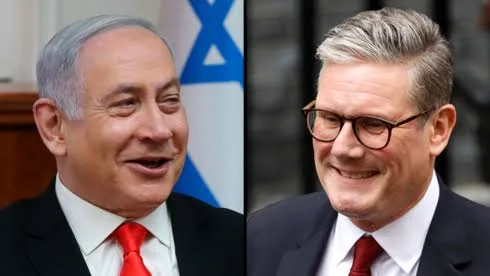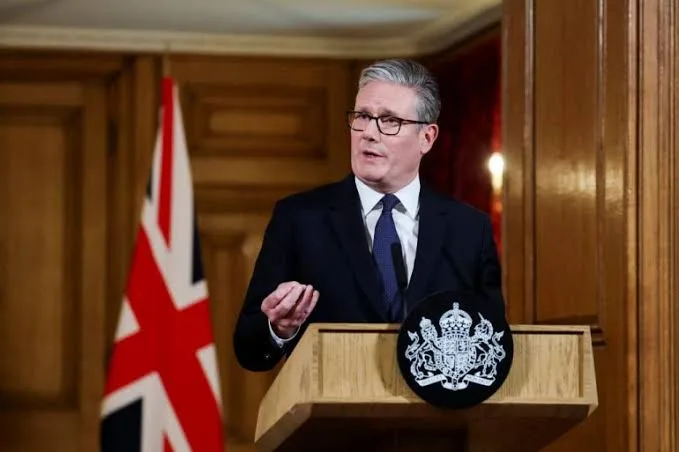London, UK – July 31, 2025 –
In a significant policy announcement, UK Prime Minister Keir Starmer today declared that the United Kingdom will officially recognize the state of Palestine at the United Nations General Assembly in September, unless Israel takes “substantive steps” to de-escalate the dire situation in Gaza and commit to a sustainable peace process leading to a two-state solution. This declaration marks a notable departure from the UK’s long-standing position of recognizing Palestine only as part of a final, negotiated peace agreement.
The Prime Minister’s statement, delivered from 10 Downing Street after an emergency cabinet meeting, underscores growing international pressure on Israel amidst the catastrophic humanitarian crisis in Gaza and concerns that the prospect of a two-state solution is rapidly diminishing. France made a similar announcement last week, indicating a coordinated European effort to push for a resolution to the conflict.
The Conditions for UK Recognition
Starmer outlined clear conditions for Israel to meet to avert the UK’s recognition of Palestine:
* End the “appalling situation in Gaza”: This includes agreeing to an immediate ceasefire.
* Allow UN aid to restart: Israel must permit the United Nations to resume and expand the supply of humanitarian aid into Gaza without delay to address the widespread starvation.
* Commit to no West Bank annexations: Israel must explicitly state that there will be no further annexations of territory in the West Bank.
* Commit to a long-term, sustainable peace process: This involves a genuine commitment to a political pathway that delivers a two-state solution.
While placing conditions on Israel, Starmer also reiterated the UK’s demands on Hamas: the immediate release of all hostages, agreement to a ceasefire, disarmament, and acceptance that they will play no part in the future governance of Gaza. However, these demands on Hamas were not framed as conditions for the UK’s recognition of a Palestinian state.

Why Now? The Context of the Decision
The decision to shift the UK’s policy comes against a backdrop of intensifying calls from within Starmer’s own Labour party and the international community for a stronger stance on the Israel-Palestine conflict. The “intolerable situation” on the ground in Gaza, characterized by a severe humanitarian crisis and mounting civilian casualties, has fueled outrage and a sense of urgency.
Starmer emphasized that the “very idea of a two-state solution is reducing and feels further away today than it has for many years,” necessitating this proactive step. He stated that the recognition of a Palestinian state is intended as “a contribution to a proper peace process at the moment of maximum impact for the two-state solution.”
Humanitarian Situation in Gaza and UK Aid Efforts

The UK’s announcement coincides with dire warnings from UN-backed food security bodies that “the worst-case scenario of famine is currently playing out” in Gaza, with “mounting evidence” of widespread starvation. The UK, along with 31 international partners, recently issued a joint statement condemning the “drip feeding of aid” and the “inhumane killing of civilians” seeking assistance in Gaza.
The UK has consistently called on Israel to immediately lift restrictions on the flow of aid and enable the UN and humanitarian NGOs to operate safely and effectively. The UK has also been involved in efforts to alleviate the humanitarian situation through air drops of supplies and facilitating the transfer of injured children from Gaza to British hospitals.
For the fiscal year 2024/25, the UK has committed £129 million in aid to the Occupied Palestinian Territories. This includes contributions through organizations like the World Bank and UNICEF, as well as significant funding for UNRWA (the UN agency for Palestinian refugees), following a temporary suspension of funds earlier in the year.
International Reactions
Israel has swiftly condemned the UK’s announcement, with Prime Minister Benjamin Netanyahu stating that such a shift in position “rewards Hamas” and harms efforts to achieve a ceasefire.
Conversely, Omar Awadallah, assistant to the Palestinian Authority’s foreign minister, welcomed Starmer’s statement, asserting that the UK has a historic responsibility to recognize a Palestinian state and would be “correcting a historic injustice” by doing so.
More than 140 countries have already recognized the state of Palestine. The potential recognition by the UK, a member of the Group of Seven and the UN Security Council, alongside France, is seen as a significant diplomatic move aimed at increasing pressure on Israel and revitalizing the stalled peace process. The coming weeks, leading up to the UN General Assembly in September, will be critical in determining whether Israel takes the steps necessary to alter the UK’s intended course of action.
